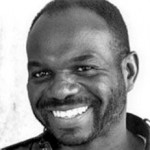Last night at a hotel in downtown Wilmington, Delaware, Renee Beaman and her Beautiful Gate AIDS ministry had 200 guests to dinner to celebrate Black HIV Awareness Day. “We had lots of young people there and even elected representatives,” Beaman reported this morning. “Willis Steele from Abbott Laboratories talked about ending stigma and how AIDS is affecting the elderly.”
Beautiful Gate has come a long way since 1994, when Beaman, having learned that her Wilmington neighbors were testing HIV positive, got a handful of volunteers together and started up the ministry in the predominantly black Bethel African Methodist Episcopal Church, where her husband, Silvester Scott, is the pastor. “It was me and six other missionary sisters,” recalls Beaman. “We sat around the board room and talked about what we were going to do about AIDS and HIV in our community.”
They organized health fairs and passed out condoms in the street—and when they started up an HIV testing program, the pastor himself was the first to roll up his sleeve. Beautiful Gate grew and grew and in 2001, became a full-fledged agency, with 23 programs ranging from a testing center (1,500 tested in 2005 alone!) to AIDS education for women in prison.
By that time, AIDS ministries had reached almost every state—to great effect but also with some debate about parishes that chose to skirt issues like homosexuality and sex education for young people. More recently, there’s been concern about the influence of Bush administration programs that are shifting HIV funds into the hands of churches that preach abstinence only.
“AIDS ministries have been very effective for some things, but many are conservative churches that accept government funding and are influenced by that,” says Kenyon Farrow of the Black Gay Network. “Some churches are reaching out to folks but are still harboring a level of hostility.”
Beautiful Gate aims to be the other kind of AIDS ministry. For instance, says Beaman, “People are sexually active, so we talk about condoms.” And while her organization does receive money from the Centers for Disease Control and the Delaware Public Health Department, she says they don’t accept grants that would limit them to an abstinence-only message—because that’s not what they preach.
What they do preach, she says, is parishioners’ responsibility to do something about HIV. For instance, while yesterday’s Black HIV Awareness Day inspired God’s House of Human Services in Albany, Georgia, to do an HIV radio show and Green Chapel in Largo, Florida, to host a community testing day, Beaman’s dinner was a very direct call to action.
She handed out postcards to her dinner guests with HIV pledges listed on each, including “I will educate my family and friends about HIV,” “I will host an educational HIV event,” and “I will get tested for HIV.” “They were supposed to check off what applied to them,” she explained—and they did, handing back the self-addressed postcards by the dozens so that Beaman could drop them in the mail next month by way of a friendly reminder.
A Black AIDS Ministry Preaches Awareness






Comments
Comments